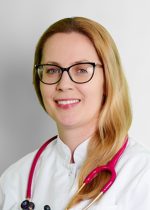Wykorzystanie EEG i QEEG w neuroterapii klinicznej: od diagnostyki wstępnej do planowania spersonalizowanej terapii neurofeedback

Piotr Sobaniec, M.Sc., Ph.D., BCN
Milena Żochowska-Sobaniec, M.D., PhD
1-day workshop
Date: March 28, 2026
Workshop Title
Wykorzystanie EEG i QEEG w neuroterapii klinicznej: od diagnostyki wstępnej do planowania spersonalizowanej terapii neurofeedback
Workshop Description
Wykład skierowany jest do terapeutów chcących pogłębić wiedzę z zakresu prowadzenia bezpiecznych i skutecznych treningów neurofeedback. Stanowi kompleksowe wprowadzenie od podstaw diagnostyki neurofizjologicznej opartej na EEG, QEEG do ich praktycznego zastosowania w neuroterapii.
Szczegółowo zostaną omówione standardy nadzoru terapeutycznego, bezpieczeństwa pacjenta, reakcji niepożądanych, oraz współpracy interdyscyplinarnej. Uczestnicy nauczą się, jak inicjować i prowadzić profesjonalną współpracę z neurologiem oraz pracownią elektroencefalografii (EEG), interpretować otrzymane wyniki badań celem opracowania indywidualnego planu terapeutycznego.
Omówione zostaną mocne i słabe strony najczęściej spotykanych metod z porównaniem EEG, QEEG, miniQEEG, oraz pomiarami z pojedynczych elektrod, z uwzględnieniem ich znaczenia diagnostycznego i klinicznego.
Zajęcia obejmą część teoretyczną – w tym analizę przypadków klinicznych – oraz część praktyczną, przedstawiającą etapy analizy zapisów EEG, QEEG wraz wykorzystaniem baz normatywnych w formułowaniu protokołów terapii neurofeedback.
W podsumowaniu omówimy, w jak wykorzystać wyniki analiz EEG i QEEG w neuroterapii pacjentów z zaburzeniami koncentracji uwagi (ADD) lub zaburzeniami ze spektrum autyzmu (ASD).
Learning Objectives
- 1) Poznanie zalecanych etapów diagnostyki wstępnej, okresowej i końcowej w planowaniu terapii neurofeedback.
- 2) Ustalenie współpracy interdyscyplinarnej ze specjalistą neurologii i pracownią EEG.
- 3) Porównanie możliwości diagnostycznych zastosowania EEG, QEEG, miniQEEG i pomiarów z pojedynczych elektrod. Przedyskutowanie istoty ich wykorzystania wraz z bazami normatywnymi.
- 4) Analiza wyników EEG i QEEG w celu ustalenia zindywidualizowanych protokołów neurofeedback na przykładzie pacjentów z zespołem deficytów uwagi (ADD) lub zaburzeń ze spektrum autyzmu (ASD).
About Piotr Sobaniec
Dr n.med. Piotr Sobaniec, BCN, jest fizjoterapeutą, neurofizjologiem i inżynierem biomedycznym, który łączy interdyscyplinarną wiedzę specjalistyczną z innowacyjnym podejściem do rehabilitacji neurologicznej.
Uzyskał tytuł magistra elektroniki na Politechnice Białostockiej oraz ukończył fizjoterapię w Wyższej Szkole Medycznej w Białymstoku. Ukończył również studia doktoranckie w dziedzinie nauk medycznych, pracując jako badacz w Klinice Neurologii Dziecięcej i Rehabilitacji Uniwersytetu Medycznego w Białymstoku. W 2012 roku odbył staż badawczy w ADD Centre w Toronto, gdzie pod okiem swoich mentorów, dr Lyndy i dr Michaela Thompsonów, zdobył cenne doświadczenie i przeszkolenie. Następnie spełnił wszystkie wymagania i jako pierwszy Polak uzyskał certyfikat Board Certified in Neurofeedback (BCN-BCIA).
Dr Sobaniec jest założycielem i dyrektorem Instytutu Neurofizjologii NEUROMASTER w Białymstoku, gdzie interdyscyplinarna współpraca jest priorytetem i dotyczy ekspertów w dziedzinach rehabilitacji, neurologii, pediatrii, psychologii, logopedii i dietetyki. Jego zespół składa się ze specjalistów w zakresie diagnozowania i rehabilitacji zaburzeń neurologicznych, w tym padaczki, zaburzeń ze spektrum autyzmu, zaburzeń koncentracji uwagi, urazów mózgu i zaburzeń lękowych.
Jego zainteresowania kliniczne i badawcze obejmują wykorzystanie technik obrazowania mózgu, zaawansowanych technik elektrofizjologicznych, takich jak EEG, QEEG i potencjałów wywołanych w leczeniu zaburzeń neurologicznych, a także analizy sygnałów i aparatury biomedycznej. Jego wkład naukowy w dziedzinie neurofizjologii obejmuje opracowanie i zastosowanie protokołów neurofeedback opartych na badaniach naukowych.
Dr Sobaniec działa aktywnie w dziedzinie elektrofizjologii od 2005 roku, zaś od 2007 roku regularnie uczestniczy w konferencjach Biofeedback Federation of Europe (BFE), również jako członek komitetu organizacyjnego i wykładowca. Prowadzi specjalistyczne szkolenia z zakresu neurofizjologii, biofeedback, EEG i QEEG. Wspiera i nadzoruje terapeutów w wielu ośrodkach w Polsce i za granicą.
Piotr Sobaniec, M.Sc., Ph.D., BCN, is a physiotherapist, neurophysiologist, and biomedical engineer who integrates interdisciplinary expertise with innovative approach to neurological rehabilitation.
He earned his master degree in Electronics from Bialystok University of Technology and Physiotherapy from the Medical College of Bialystok. He also finished his doctoral dissertation in medical sciences, working as a researcher at the Department of Pediatric Neurology and Rehabilitation, at the Medical University of Białystok. In 2012, he completed a research internship at the ADD Centre in Toronto, which presented him with a valuable learning and training opportunity under the guidance of his mentors, Drs Lynda and Michael Thompson. After that, he met all the requirements and became Board Certified in Neurofeedback (BCN-BCIA).
Dr. Sobaniec is the founder and head of the NEUROMASTER Institute of Neurophysiology in Białystok, where an interdisciplinary collaboration is a top priority. His team is the leading specialists in diagnosing and rehabilitating neurological disorders, including epilepsy, autism spectrum disorder, attention deficit disorder, brain injuries, and anxiety-related conditions. They engage with experts in rehabilitation, neurology, pediatrics, psychology, speech therapy and dietetics.
His clinical and research interests include the use of brain imaging, signal processing , biomedical instrumentation and advanced electrophysiological techniques, such as EEG, QEEG and evoked potentials in treating neurological dysfunctions. The scientific contributions to neurophysiology include developing and applying evidence-based neurofeedback.
Dr. Sobaniec has been actively involved in the field of electrophysiology since 2005 and has regularly participated in the BFE Meetings since 2007. He teaches specialized training courses in neurophysiology, neurofeedback, EEG, and QEEG. He also supports and supervises therapists at many centres in Poland and abroad.
About Milena Żochowska-Sobaniec
Dr n. med. Milena Żochowska-Sobaniec jest lekarzem i naukowcem specjalizującym się w pediatrii i neurologii dziecięcej. Posiada bogate doświadczenie zarówno w praktyce klinicznej, jak i badaniach naukowych.
Aktualnie pracuje jako lekarz w Klinice Neurologii Dziecięcej Uniwersyteckiego Dziecięcego Szpitala Klinicznego w Białymstoku, gdzie zapewnia specjalistyczną opiekę neurologiczną dzieciom z złożonymi zaburzeniami neurorozwojowymi i neurofizjologicznymi. Jest również adiunktem w Zakładzie Medycyny Wieku Rozwojowego i Pielęgniarstwa Pediatrycznego Uniwersytetu Medycznego w Białymstoku, gdzie zajmuje się edukacją studentów, nadzorem klinicznym i badaniami naukowymi. W Instytucie Neurofizjologii NEUROMASTER odpowiada za konsultacje pacjentów i analizę badań elektroencefalograficznych, a także koordynację działań naukowych i szkoleniowych.
Dr Żochowska-Sobaniec posiada wiedzę naukową z zakresu neurologii dziecięcej i neurofizjologii klinicznej, w tym leczenia zaburzeń takich jak padaczka, mózgowe porażenie dziecięce, zaburzenia ze spektrum autyzmu oraz inne zaburzenia rozwojowe lub neuroimmunologiczne. Jej badania koncentrują się na badaniach neurofizjologicznych z wykorzystaniem metod EEG i QEEG do badania aktywności mózgu u populacji pediatrycznej, ze szczególnym uwzględnieniem autyzmu i celiakii.
Jako klinicysta, badacz i nauczyciel akademicki, nieustannie angażuje się w pogłębianie wiedzy na temat zaburzeń neurologicznych u dzieci i doskonalenie metod ich leczenia, a także w ciągły rozwój neurologii dziecięcej i neurofizjologii poprzez innowacje, współpracę i zaangażowanie w medycynę skoncentrowaną na pacjencie.
Milena Żochowska-Sobaniec, M.D., PhD, is a physician and academic who specializes in paediatrics and child neurology. She has a strong background in both clinical practice and research.
She is currently a physician in the Department of Pediatric Neurology at The Medical University of Bialystok Children’s Clinical Hospital, where she provides specialized neurological care to children with complex neurodevelopmental and neurophysiological conditions. She is also an assistant professor in the Department of Developmental Medicine and Pediatric Nursing at the Medical University of Białystok, contributing to teaching, clinical supervision and academic research. At the Institute of Neurophysiology NEUROMASTER, she is responsible for patient consultations and electroencephalography analysis, as well as the coordination of scientific and training activities.
Dr. Żochowska-Sobaniec scientific expertise encompasses pediatric neurology and clinical neurophysiology, including the treatment of disorders such as epilepsy, cerebral palsy, autism spectrum disorder and other developmental or neuroimmune conditions. Her research is focused on neurophysiological studies, using EEG and QEEG methods to examine brain activity in pediatric populations, with a particular emphasis on autism and celiac disease.
As a clinician, researcher and educator, she maintains her dedication to the improvement of understanding and treatment of neurological disorders in children, the continuous advancement of the fields of neurology and neurophysiology through innovation, collaboration, and commitment to patient-centered medicine.


